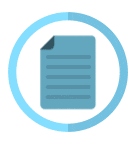The Effect of Peer Feedback on Students’ Writing
DOI:
https://doi.org/10.31597/sl.v2i2.520Keywords:
peer feedback, writing achievementAbstract
Writing is one of productive skill which frequently represents students’ ability in expressing their thought toward something. Peer-feedback is considered to be important point in students’ writing process. This article aims to investigate the effect of peer feedback on students’ writing achievement at STKIP PGRI Jombang. Quasi-experimental is used as research design with test as the main instrument and questionnaire as the secondary instrument. The result of ANCOVA showed that there is a significant effect of peer feedback on students’ writing achievement. Moreover, the result of students’ response toward the used of peer feedback indicates positive result
References
Chen, C. W. Y. (2010). Graduate students’ self-reported perspectives regarding peer feedback and feedback from writing consultants. Asia Pacific Education Review, 11(2), 151-158.
Chen, Y. L., Liu, E. Z. F., Shih, R. C., Wu, C. T., & Yuan, S. M. (2011). Use of peer feedback to enhance elementary students' writing through blogging. British Journal of Educational Technology, 42(1).
Gibbs, G. & Simpson, C. (2004) Conditions under which assessment supports students’ learning, Learning and Teaching in Higher Education, 1, 3–31.
Gielen, S., Tops, L., Dochy, F., Onghena, P., & Smeets, S. (2010). A comparative study of peer and teacher feedback and of various peer feedback forms in a secondary school writing curriculum. British educational research journal, 36(1), 143-162.
Higgins, R. (2000) ‘Be more critical!’: rethinking assessment feedback. Paper presented at the British Educational Research Association Conference, Cardiff University, Wales, 7–10 September.
Miao, Y., Badger, R., & Zhen, Y. (2006). A comparative study of peer and teacher feedback in Chinese EFL writing class. Journal of Second Language Writing, 15, 179-200.
Nelson, M. M., & Schunn, C. D. (2009). The nature of feedback: How different types of peer feedback affect writing performance. Instructional Science, 37(4), 375-401.
Sadler, D. R. (1998) Formative assessment: revisiting the territory, Assessment in Education, 5, 77–84.
Saito, H., & Fujita, T. (2004). Characteristics and user acceptance of peer rating in EFL writing classrooms. Language Teaching Research, 8(1), 31–54.
Zhu, W. (2001). Interaction and feedback in mixed peer response groups. Journal of second language writing, 10(4), 251-276.
Downloads
Published
How to Cite
Issue
Section
License
1. Copyright of this journal is possession of Editorial Board and Journal Manager, by the knowledge of author, whilst the moral right of the publication belongs to the author.
2. Legal formal aspect of journal publication accessibility refers to Creative Commons Atribution-ShareAlike (CC BY-SA), implies that this license lets others remix, adapt, and build upon your work even for commercial purposes, as long as they credit you and license their new creations under the identical terms. This license is often compared to “copyleft” free and open source software licenses.
3. Every publications (printed/electronic) are open access for educational purposes, research, and library. Other that the aims mentioned above, editorial board is not responsible for copyright violation















